Pornpit Wongthongtham
Relational Learning Analysis of Social Politics using Knowledge Graph Embedding
Jun 02, 2020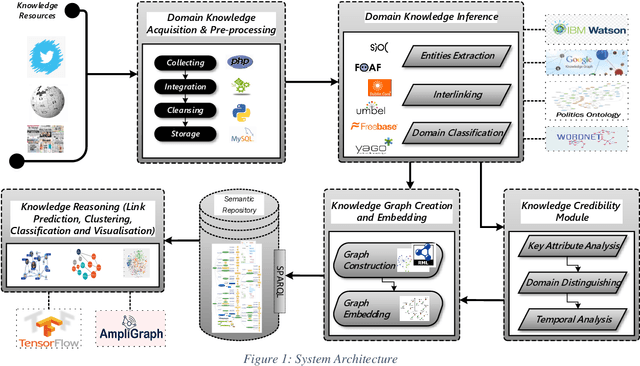
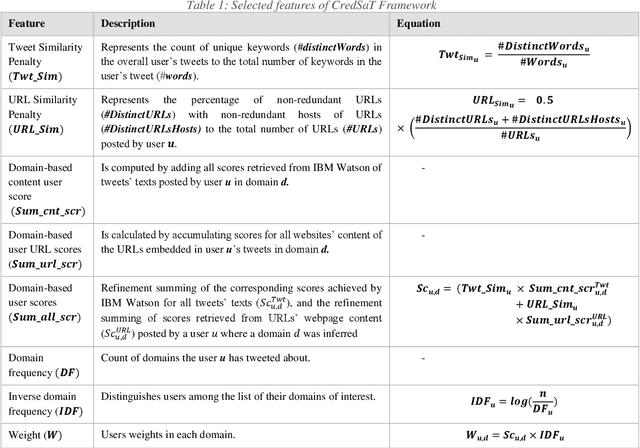
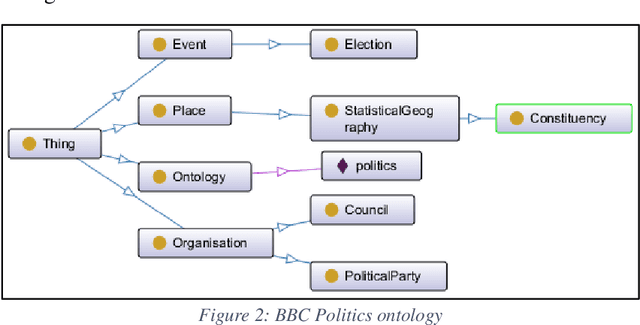
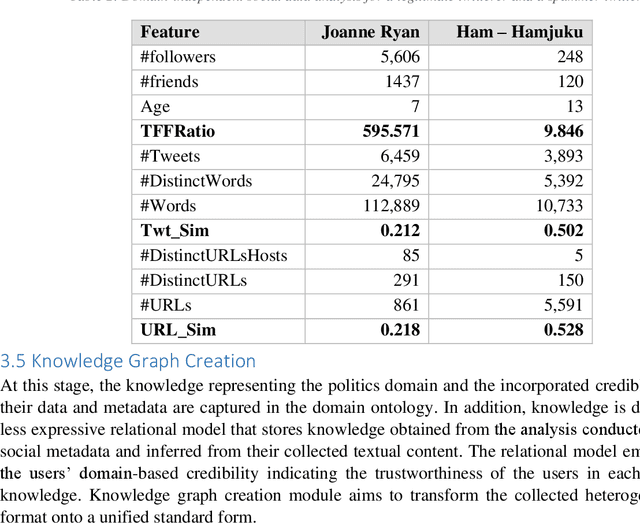
Abstract:Knowledge Graphs (KGs) have gained considerable attention recently from both academia and industry. In fact, incorporating graph technology and the copious of various graph datasets have led the research community to build sophisticated graph analytics tools. Therefore, the application of KGs has extended to tackle a plethora of real-life problems in dissimilar domains. Despite the abundance of the currently proliferated generic KGs, there is a vital need to construct domain-specific KGs. Further, quality and credibility should be assimilated in the process of constructing and augmenting KGs, particularly those propagated from mixed-quality resources such as social media data. This paper presents a novel credibility domain-based KG Embedding framework. This framework involves capturing a fusion of data obtained from heterogeneous resources into a formal KG representation depicted by a domain ontology. The proposed approach makes use of various knowledge-based repositories to enrich the semantics of the textual contents, thereby facilitating the interoperability of information. The proposed framework also embodies a credibility module to ensure data quality and trustworthiness. The constructed KG is then embedded in a low-dimension semantically-continuous space using several embedding techniques. The utility of the constructed KG and its embeddings is demonstrated and substantiated on link prediction, clustering, and visualisation tasks.
An Approach for Time-aware Domain-based Social Influence Prediction
Jan 19, 2020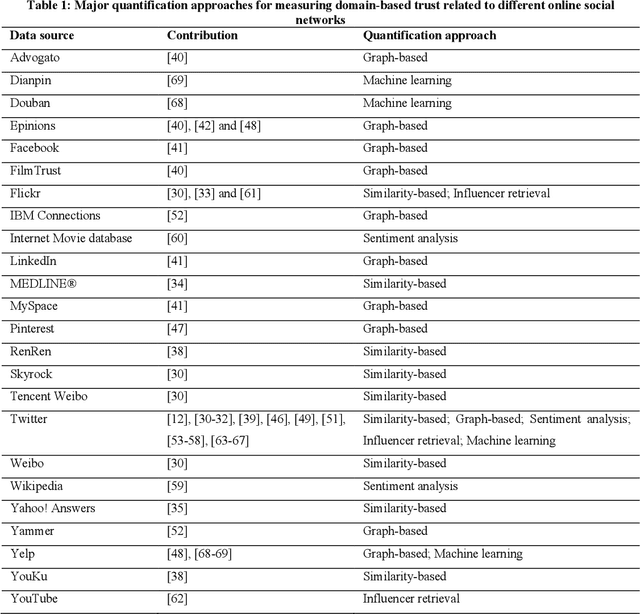
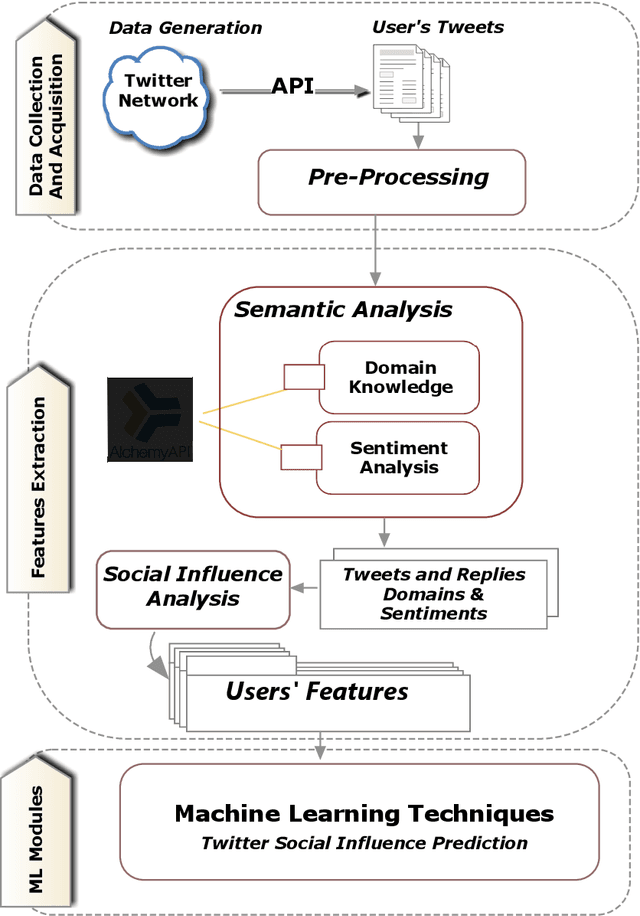
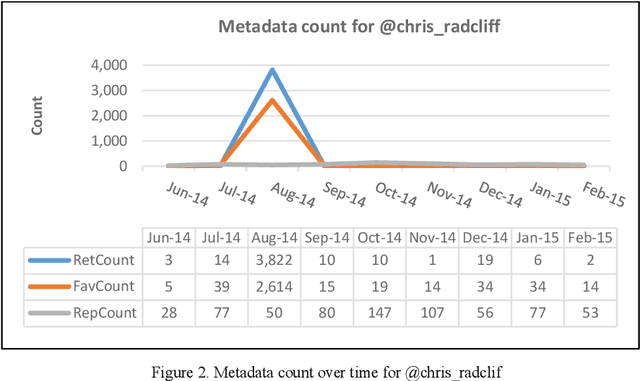
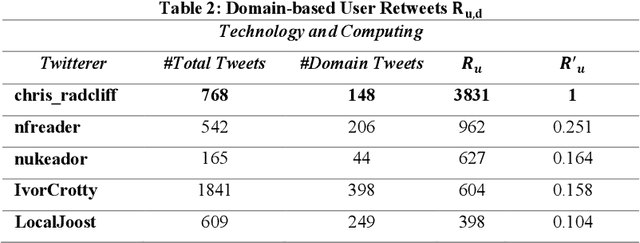
Abstract:Online Social Networks(OSNs) have established virtual platforms enabling people to express their opinions, interests and thoughts in a variety of contexts and domains, allowing legitimate users as well as spammers and other untrustworthy users to publish and spread their content. Hence, the concept of social trust has attracted the attention of information processors/data scientists and information consumers/business firms. One of the main reasons for acquiring the value of Social Big Data (SBD) is to provide frameworks and methodologies using which the credibility of OSNs users can be evaluated. These approaches should be scalable to accommodate large-scale social data. Hence, there is a need for well comprehending of social trust to improve and expand the analysis process and inferring the credibility of SBD. Given the exposed environment's settings and fewer limitations related to OSNs, the medium allows legitimate and genuine users as well as spammers and other low trustworthy users to publish and spread their content. Hence, this paper presents an approach incorporates semantic analysis and machine learning modules to measure and predict users' trustworthiness in numerous domains in different time periods. The evaluation of the conducted experiment validates the applicability of the incorporated machine learning techniques to predict highly trustworthy domain-based users.
Social Credibility Incorporating Semantic Analysis and Machine Learning: A Survey of the State-of-the-Art and Future Research Directions
Feb 27, 2019Abstract:The wealth of Social Big Data (SBD) represents a unique opportunity for organisations to obtain the excessive use of such data abundance to increase their revenues. Hence, there is an imperative need to capture, load, store, process, analyse, transform, interpret, and visualise such manifold social datasets to develop meaningful insights that are specific to an application domain. This paper lays the theoretical background by introducing the state-of-the-art literature review of the research topic. This is associated with a critical evaluation of the current approaches, and fortified with certain recommendations indicated to bridge the research gap.
 Add to Chrome
Add to Chrome Add to Firefox
Add to Firefox Add to Edge
Add to Edge